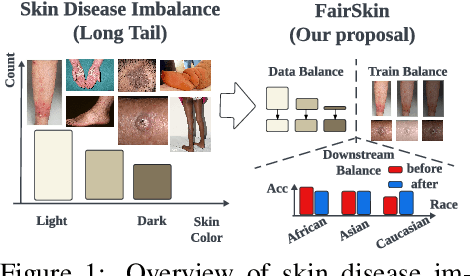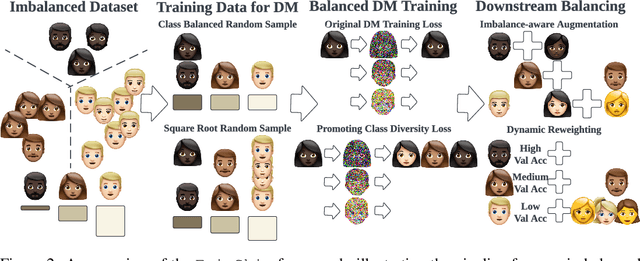FairSkin: Fair Diffusion for Skin Disease Image Generation
Paper and Code
Oct 31, 2024



Image generation is a prevailing technique for clinical data augmentation for advancing diagnostic accuracy and reducing healthcare disparities. Diffusion Model (DM) has become a leading method in generating synthetic medical images, but it suffers from a critical twofold bias: (1) The quality of images generated for Caucasian individuals is significantly higher, as measured by the Frechet Inception Distance (FID). (2) The ability of the downstream-task learner to learn critical features from disease images varies across different skin tones. These biases pose significant risks, particularly in skin disease detection, where underrepresentation of certain skin tones can lead to misdiagnosis or neglect of specific conditions. To address these challenges, we propose FairSkin, a novel DM framework that mitigates these biases through a three-level resampling mechanism, ensuring fairer representation across racial and disease categories. Our approach significantly improves the diversity and quality of generated images, contributing to more equitable skin disease detection in clinical settings.
 Add to Chrome
Add to Chrome Add to Firefox
Add to Firefox Add to Edge
Add to Edge